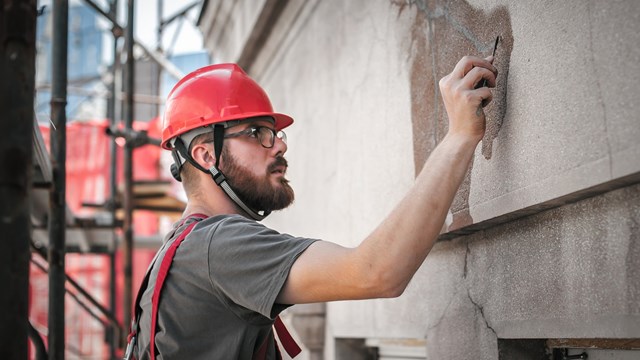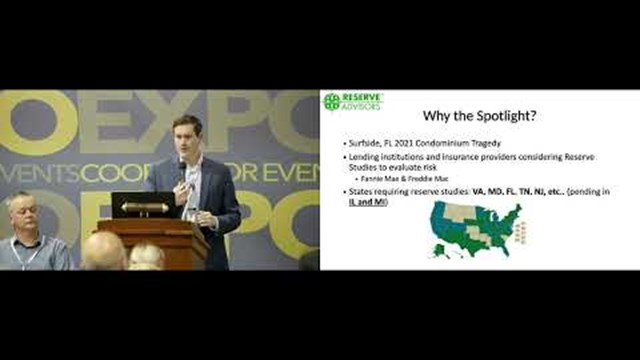Home ownership has long been a key component of the American Dream– especially after years of renting. But when the faucet leaks in your condo or co-op unit, there’s no more calling the landlord; you’ve got to fix it yourself. In shared interest communities, that’s true of every component of the building, both inside and outside your unit. The upkeep, maintenance, and repair of everything from the roof to the boiler is a community expense, overseen by the board, the community’s elected representatives. Funding for those repairs can come from several sources: a lender, the community’s reserve funds, or by assessing the shareholders or owners. Depending on the scope and type of repair, there’s a good chance the needed funds will come from assessments—which of course everyone hates.
Why Assess?
According to Nickolas Bartzen, an attorney and partner with the Chicago-based law firm Bartzen Rosenlund Kasten LLC, the reasons why a board might need to turn to residents for additional funds “range from the board’s failure to budget properly —possibly due to lack of information about upcoming repairs, or a disinclination to propose a politically unpopular budget—to true emergencies and unexpected expenses,” like a collapsed roof, or a boiler konking out in mid-January, Bartzen notes. “Insurance premiums can also skyrocket unexpectedly, leaving the board’s budget numbers in the dust, or the association could be forced to pay a large settlement or judgment in a legal dispute. That’s a less-common (but nonetheless necessary) reason for a special assessment.”
The fact is that most buildings and HOAs just don’t have adequate reserves to cover a major capital repair or replacement, says Dan Wollman, CEO of Gumley Haft, a management firm located in New York City. “They have to assess–or borrow. In the low interest rate environment we were in for many years, many buildings weren’t interested in building up reserve funds anyway, since they couldn’t earn much on the deposits. They could borrow at low interest, though. Now that thought process is changing.”
Additionally, Wollman points out that “Assessments should not be used for the daily operations of a building—except for when costs rise quickly and precipitously. We have seen some co-ops and condos who institute, say, a fuel assessment. The view is that the assessment wasn’t a permanent change to operating expenses, but there was a market-based change, and everyone felt things would eventually calm down. Buildings budgeted for fuel at x-dollars, and it went up to y-dollars. They view it as a surcharge. We are now seeing this with dramatic increases in building insurance premiums, which have jumped this past year as well.”
“The most common reason for an assessment is the need to do repairs,” says Scott Wolf, CEO of Brigs, a management firm based in Boston. “Occasionally, an association might do an assessment to rebuild their reserve accounts after dipping into them. Instead of increasing monthly common charges, they may do a special charge to put money back in for future emergencies.”
A Word About Reserves
Before we get deeper into assessments, let’s understand reserves. It’s tempting to think, “Well, we have reserve funds—why don’t we just use them to make the repairs?” The simple truth is that in this case, one must think less like a homeowner, and more like an accountant to understand what reserves actually are, and why they’re there.
When it comes to exactly how much money a community should hold in its reserve fund, “There are no minimums or maximums,” says Wolf. “Your governing documents will say what ‘adequate reserves’ are required. Fannie Mae requires that 10 percent of operating expenses go into your operating reserves—but that’s not nearly enough. The trend since the Surfside, Florida building collapse [in 2021] is to conduct reserve studies” to assess the condition and remaining useful life of major building systems and structures. This enables boards to budget accordingly and not be caught unaware when a major repair or replacement is needed. “More reserve studies are getting done,” Wolf continues. “My biggest concern is that a board does a reserve study, gets a figure for how much they should have in their reserves based on the results of that study, and says ‘there’s no way we can do that.’ You need to find a reasonable number the residents can live with.”
For our purposes, there are essentially two types of reserves in a shared-interest community: operating reserves, and replacement reserves. A contribution to your building’s operating reserves is built into your monthly maintenance or common charges to cover the cost of keeping your building or HOA running from day to day, and should be adjusted upward as needed to account for inflation. Replacement reserves, more commonly known simply as reserve accounts, are larger sums kept aside for emergencies. (It should be noted that in co-ops, there may be other reserves related to the building’s underlying permanent mortgage—but those are beyond the scope of this article.)
Assess, Borrow, or Tap Reserves?
When the proverbial rainy day comes, and a condo, HOA, or co-op’s roof has reached the end of its useful life and started to leak, the board basically has three choices for how to pay for the repair or replacement: They can assess the residents, they can borrow the money, or they can dip into their reserves. Which may beg the question: Given how onerous and unpopular assessments are, wouldn’t boards be better off using them as a last resort? Why not just automatically draw the funds from the reserves?
Simply put, because “Million-dollar projects can’t be paid for from reserves,” says Wollman, “and even if they could, you’d have to replenish those reserves anyway.”
Also, borrowing is—at best—inconvenient and complicated for multifamily communities, as there isn’t any fee position for the lender to place a lien against—though it is somewhat easier for co-ops, since the real estate is still ‘whole.’ Co-ops generally carry an underlying permanent mortgage on their property. When this mortgage periodically comes up for refinance, or when the corporation needs additional funds to replace a roof or a boiler, or upgrade elevators, for example, the co-op corporation can refinance it and take out money to do the work. It’s not so easy for condominiums. The only collateral available in their case is a lien against the monthly common charge collections, and terms for this type of financing are rarely favorable. “Therefore, assess,” says Wollman.
What if a Resident Can’t Pay?
As for how assessments are actually levied, “[They’re] charged in lump sums, or spread over time,” says Bartzen, “and often owners have the option to select between the two. When special assessments are used to finance debt (if a loan is taken out), those owners who opt for the long-term payment plans are often expected to pay the interest or financing charges the association is forced to pay to the lender, which somewhat incentivizes lump-sum payment for those owners with the cash available.”
Despite these options, a board’s best intention to fulfill its fiduciary responsibility and maintain the community’s assets, and residents’ commitment to be reliable and fully-vested members of their community, there may be times when one or more owners or shareholders are simply unable to pay their portion of a special assessment. How should the board handle this?
“This certainly occurs,” says Bartzen, “and can be a delicate issue to resolve for management and the board. Some owners live on fixed incomes and don't have the extra cash to pay for special assessments. Nonetheless, associations have a duty to charge each owner their pro-rata share. A board can accommodate those with fixed incomes by extending payment plans for special assessments to a more manageable monthly fee. If the owner is still unable to pay, that owner will have to consider a HELOC from their bank, or borrowing from friends or family.
“The ability of shareholders or owners to pay should be part of the consideration boards make before assessing,” says William McCracken, a partner with Moritt Hock & Hamroff, a law firm based in New York City. “Consider over what period of time the assessment should be made, not leaving owners and shareholders in a difficult position. Once the assessment is made however, it’s the obligation of the owner to pay it.” If the resident fails to do that, McCracken continues, “It becomes the board’s decision whether they need to pursue a nonpayment in a co-op or a lien in a condo.”
Richard Brooks, a principal with the Braintree, Massachusetts-based law firm of Marcus, Errico, Emmer and Brooks suggests that if a resident gets hit with an assessment they simply can’t afford, “They can try to get an equity line or borrow from other sources; a 401K or family, or they may be forced to sell, because you don’t want to end up in foreclosure. The association has to do what’s good for the community. Sometimes we offer a payment plan if the owner is older. It also depends on the number of units in association.”
On the other side of the equation, how do residents know their assessment dollars are being spent appropriately–that the cost of the repair/etc is warranted, the project was bid out properly, and that assessing residents was truly the most prudent course for the board/management?
“Owners must do their own homework on board decisions,” says Bartzen, “meaning they must attend board meetings, review minutes, ask to see contracts (which in Illinois, each owner has a right to see), and, to the extent possible, ask questions of the board during the proper forums. Boards and management must do their part by ensuring that all decisions are made properly and documented appropriately.”
Wollman concurs, adding that “While the board should have the latitude to do what needs to be done, there should be fair and appropriate reporting to the owners and/or shareholders.” Residents, as owners, want to protect their investment. They don’t want information withheld from them. Truth is always the best policy.
While living in a multifamily building differs in many ways from living in a single-family home, the physical and financial realities are the same: if the roof is leaking, it has to be fixed. In a single-family home, that cost falls solely on the homeowner; in a co-op or condo, the cost is split among the people who live in the building. Everyone hates assessments—but with prudent planning, well-advised budgeting, and input from professionals, proactive boards can at least prepare residents for them, and make them as manageable as possible.










Comments
Leave a Comment